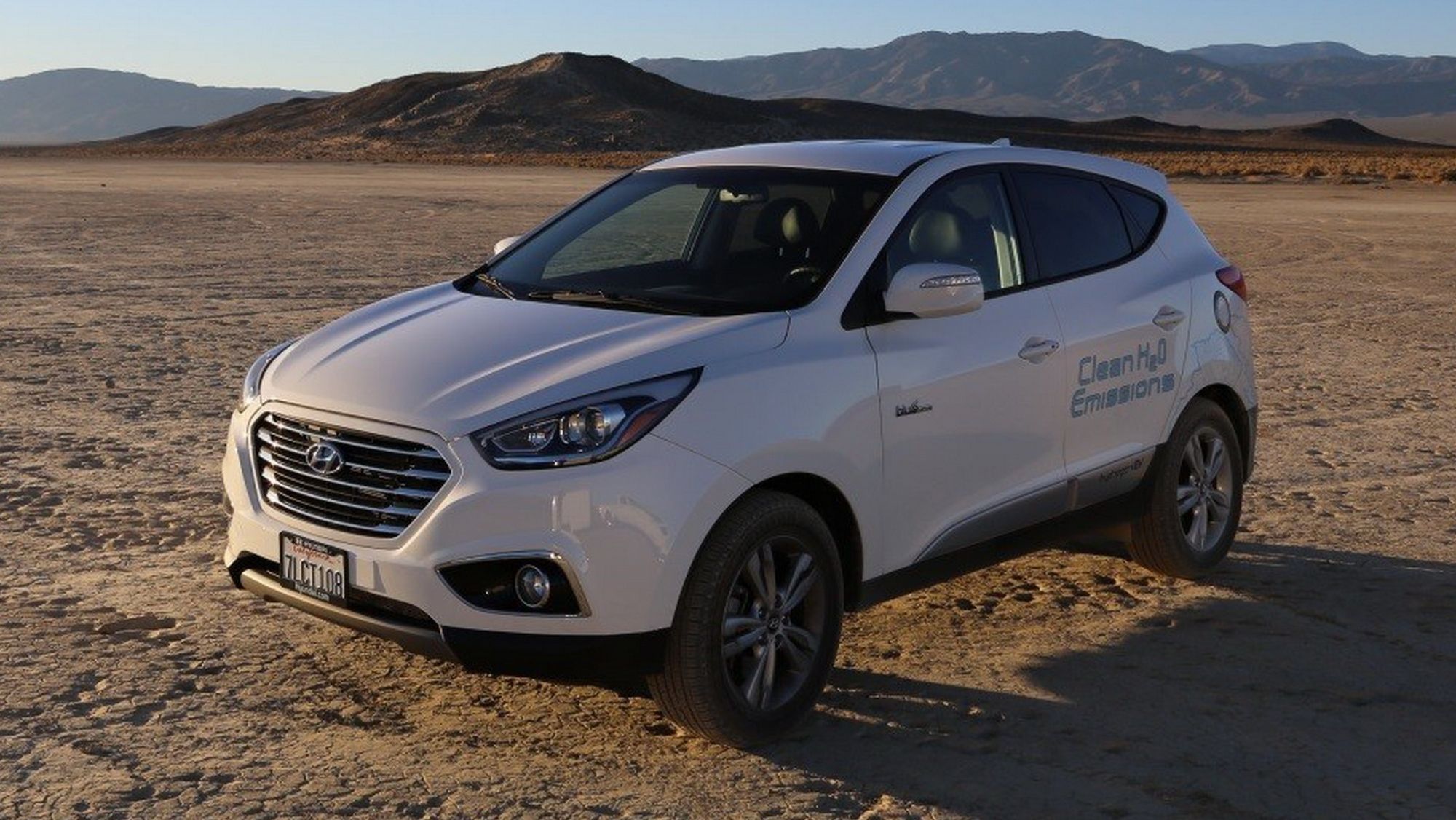The Hyundai Tucson->ke3245 is probably one of the last cars anybody would associate with land speed records. But, the rules of the game change a little bit anytime hydrogen is involved. Such was the case when the Tucson Fuel Cell claimed the land speed record for a production hydrogen-powered SUV at the Soggy Dry Lake Bed in California. During one of its runs, the Tucson Fuel Cell clocked in a top speed of 94.6 mph to set the record.->ke1948 Considering that the number of eligible SUVs->ke145 that can supplant this new record is relatively thin, the Tucson Fuel Cell could be holding on to its achievement for some time.
Regardless of its level of difficulty, a record is still a record and Hyundai, for its part, is all too happy to claim it as it gives the Tucson Fuel Cell another achievement to own for itself. But, the new land speed record wasn’t the only thing the Tucson Fuel Cell “owned” during its time at the Soggy Dry Lake Bed. The fuel-cell SUV also showcased a handful of its capabilities, none more impressive than its ability to easily traverse the off-road terrain of the lake bed’s environment.
These abilities certainly bode well for the Tucson Fuel Cell’s appeal, especially in a market like Southern California, which has the highest concentration of hydrogen refueling stations anywhere in the US. Hyundai already has a share in that market, thanks to the number of Tucson Fuel Cell models sold in that area. And, as Hyundai continues to tout the Tucson Fuel Cell’s capabilities, it’s appeal will likely increase to coincide with the state’s rapidly evolving hydrogen infrastructure.
As far as timing is concerned, Hyundai->ke201 couldn't have picked a better time to set the land speed record for a production, hydrogen-powered->ke4485 SUV.
Continue reading for the full story.
Why it matters
I’m of the belief that the land speed record itself doesn’t matter for Hyundai. I think that what’s more important for the company was to showcase the capabilities of the Tucson Fuel Cell in less-than-ideal road conditions. See, Southern California may not have the best road condition in the US, but it’s still miles better than what the Soggy Dry Lake Bed has to offer. Between the dry environment and the off-road terrain, it’s not perfectly suited for an FCV vehicle, or any production vehicle for that matter.
But, seeing the Tucson Fuel Cell effortlessly navigate around the surroundings is the kind of showcase Hyundai wants its customers to see. Current owners may already be aware of the Tucson FCV’s capabilities, but prospective owners of the SUV are all likely to take these achievements to heart whenever they’re in the market for fuel-cell SUV.
The land speed record is an impressive feather in the cap of the Tucson Fuel Cell. But, in the end, it’s not going to be one of its more important achievements. Hyundai isn’t going to say it, but I know what the company is thinking. This land speed record is just a tool to show the public what the SUV can do, relative to the drivetrain that’s powering it.
There’s a good chance that the more people hear about what the Tucson Fuel Cell was able to achieve, the more likely they are to gravitate towards the model, especially if they’re looking at a market that currently doesn’t have a lot of competition in it. Being one of the first hydrogen-powered SUVs to hit the market is a good place for the Tucson Fuel Cell to be in. It's even better if it can lay claim to being the owner of a land speed record.
Hyundai Tucson Fuel Cell
Read our full review on the Hyundai Tucson Fuel Cell here.

